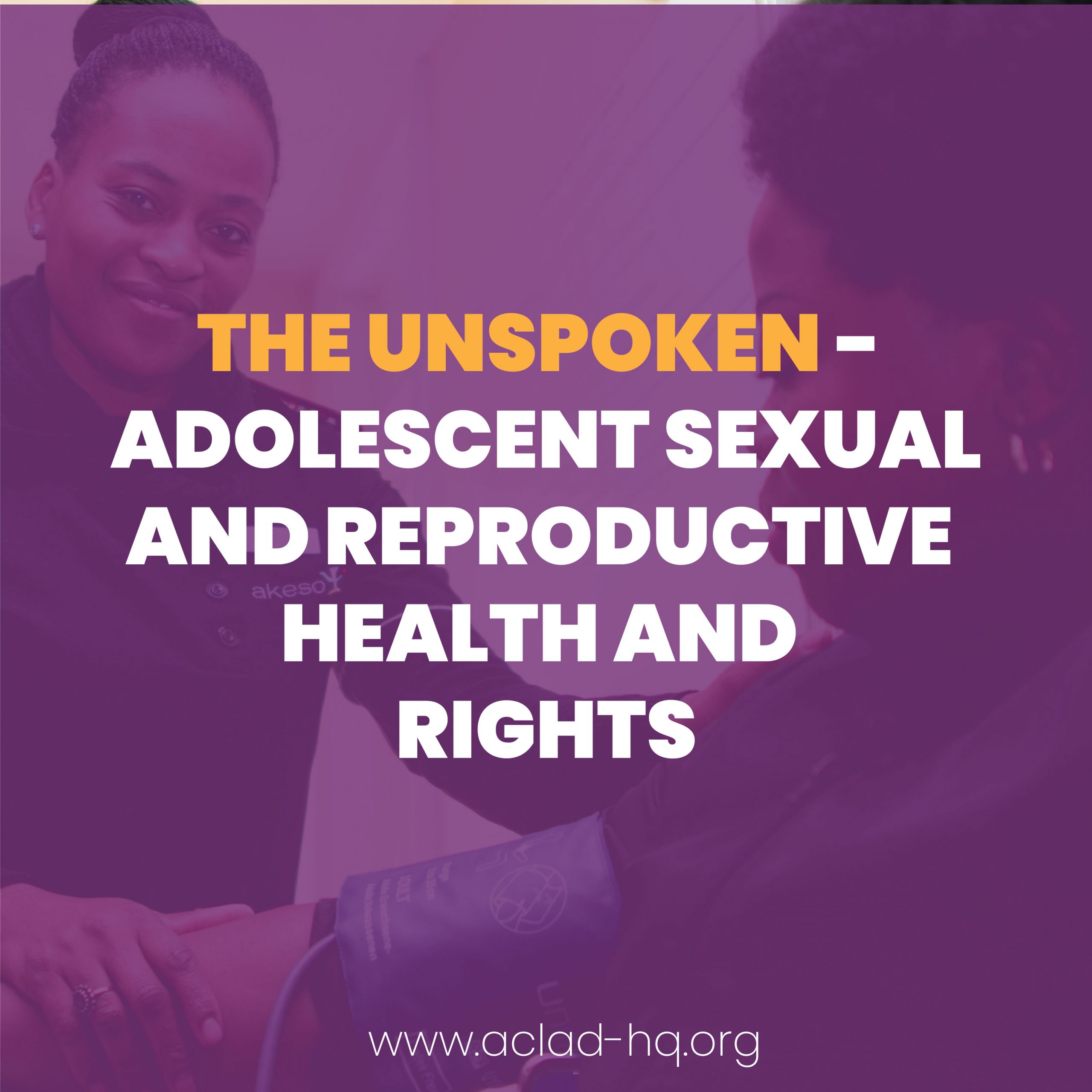The Unspoken-adolescent sexual and reproductive health and rights

According to the United Nations Population Fund (UNFPA)[1], the onset of adolescence not only brings bodily changes but also new vulnerabilities to human rights abuses. These abuses have been noted to be in the areas of sexuality, marriage and childbearing. Yet too many young people face barriers to reproductive health information and care. Even those able to find accurate information about their health and rights may be unable to access the services needed to protect their health.
Adolescent sexual and reproductive health is a matter that is a hushed topic and not addressed at the family level or in school, yet many adolescents are becoming sexually active early. This early onset of sexual activity and experimentation results in unplanned pregnancies, unsafe abortions, school drop-outs, early marriages and adolescents putting themselves at risk of sexually transmitted diseases and infections (STDs and STIs) as well as HIV/AIDS. It has been noted that there is a lack of information about sexual and reproductive health and rights as well as inadequate access to services tailored to young people. What the government, NGOs and other partners can do is advocate for and support safe spaces and all-inclusive youth-friendly health-care packages. These are spaces and health centers where youth and adolescents access accurate information on sexual and reproductive health or comprehensive sexuality education as well as access to a range of safe and affordable contraceptive methods.
Comprehensive sexuality education[2] comprises of scientifically accurate information on human development, anatomy and reproductive health and includes topics like contraception, childbirth and sexually transmitted infections. This education also goes beyond so as to help adolescents nurture positive values regarding their sexual and reproductive health. Comprehensive sexuality education must be supported by government and other key partners as it will empower young people to know and exercise their rights including the right to delay marriage and refuse unwanted sexual advances.
Of importance to note is that when advocating for adolescent sexual and reproductive health and rights, the adolescents must be involved as unbiased equal partners in the process of identifying key challenges they experience. They should be part of the solution finding, advocacy message development and be allowed to speak to the decision-makers and policy makers who must prioritize meaningful engagement of youth in policy-making and implementing processes that can impact their health and well-being.
The International Planned Parenthood Federation (IPPF)[3] suggests that young people be involved in a meaningful way in all facets of sexual and reproductive health programmes and policy making to ensure that interventions accurately respond to their realities. In addition meaningful youth engagement aims to encourage ownership and commitment by young people of those interventions and empower them with confidence and leadership skills.
Catherine Muteithia
ACLAD Media Consultant
[1] Adolescent Sexual And Reproductive Health
